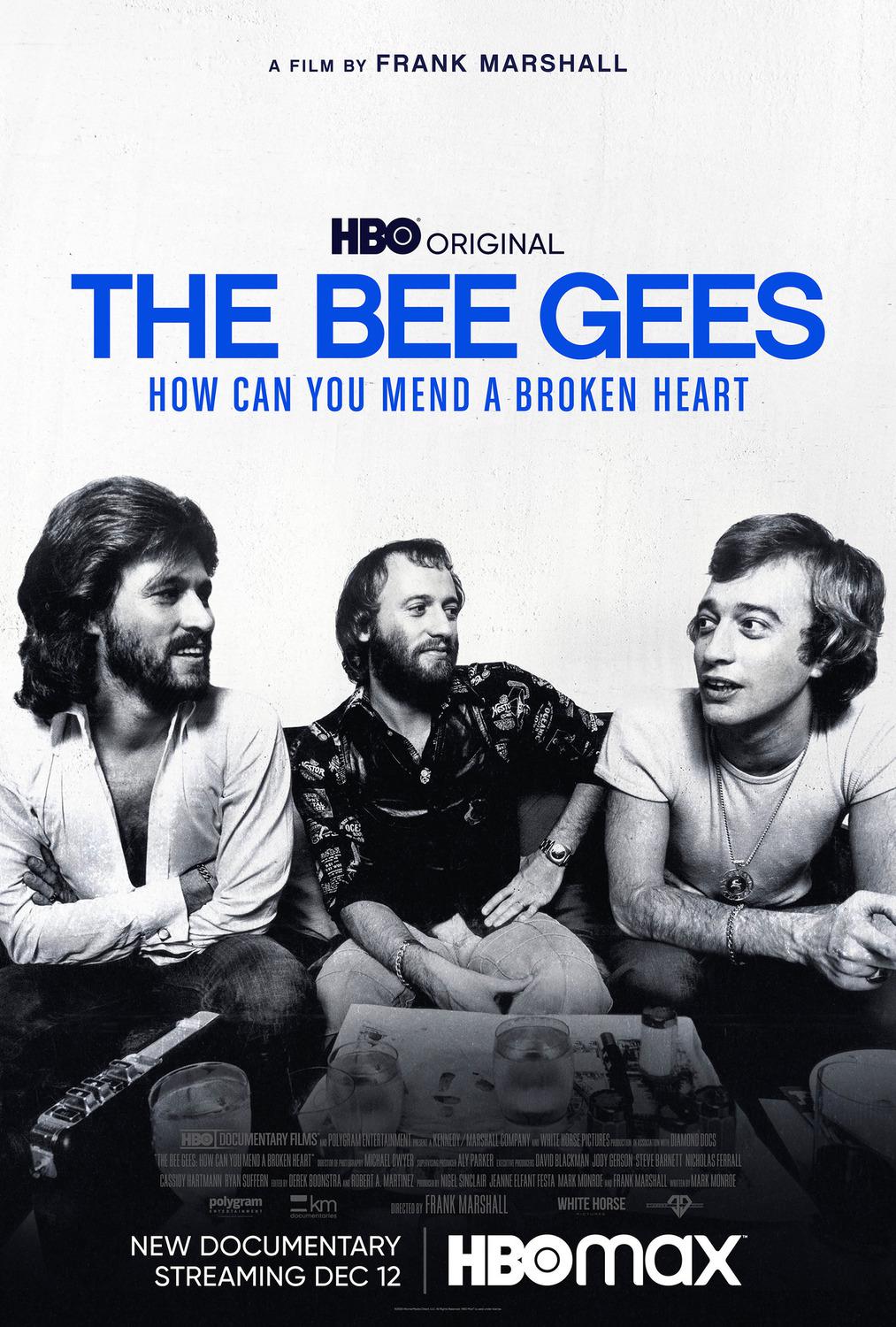To be perfectly honest, I didn’t know how much I needed this film in my life. Expertly directed and produced by Academy Award-nominated filmmaker (“The Curious Case of Benjamin Button,” “Seabiscuit”) Frank Marshall, “The Bee Gees: How Can You Mend a Broken Heart” is currently streaming on HBO Max. Chronicling the triumphs and hurdles of the phenomenal brothers Gibb, otherwise known as the Bee Gees, esteemed producers also include Nigel Sinclair, Jeanne Elfant Festa, and Mark Monroe.
I was only about five when Barry, Maurice and Robin had their first number one hit in the USA: “How Can You Mend a Broken Heart.” While I can’t sing all that well, I can approximate the distinct harmonies contributed by each brother throughout that song, stylizing each note in something resembling their patently emotive tones. Those sounds and words will be with me always, but there is so much more. Countless phrases, choruses and melodies – as well as highly emotional connections to the bonds of brotherhood, and the wild, aspirational exuberance of growing up in America in the 1970s – it all comes together in association with these men. As for their baby brother Andy, I wasn’t the only 7th grade boy who raged with envy as all the girls swooned.
This wonderful film tells the entire story, connecting us into the early dreams of stardom, carrying us along to unimaginable heights, and setting it all ablaze when a mindless faction of douchebags changed their fate. All in all, the remarkable lives of the Gibbs represent quite the fairy tale, and this story is one I needed to understand better. Now, when we hear those arresting voices telling us they could never see tomorrow, but hoping to live again, we can better fathom the sorrows, and immerse ourseives in the misty memories of days gone by.
Despite COVID-19 knocking out many film festivals in 2020, “The Bee Gees: How Can You Mend a Broken Heart” still had a successful run. Among its screenings, it was featured in the iconic Newport Beach Film Festival, which is right where Mr. Marshall grew up. Those and more fascinating details come to light in this filmmaker Q&A.
With cinematography by Michael Dwyer, edited by Derek Boonstra and Robert A. Martinez, this one’s a masterpiece in my book.
